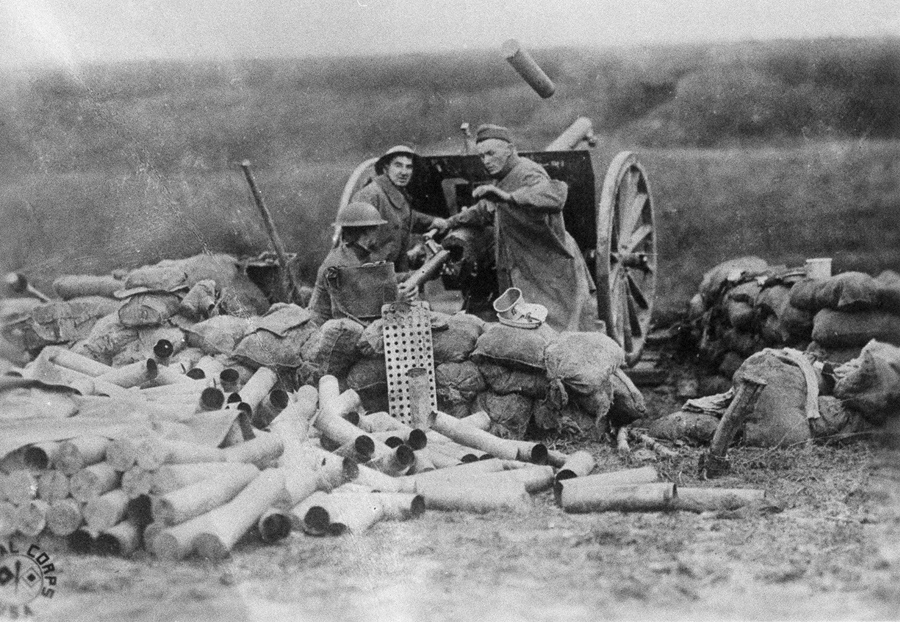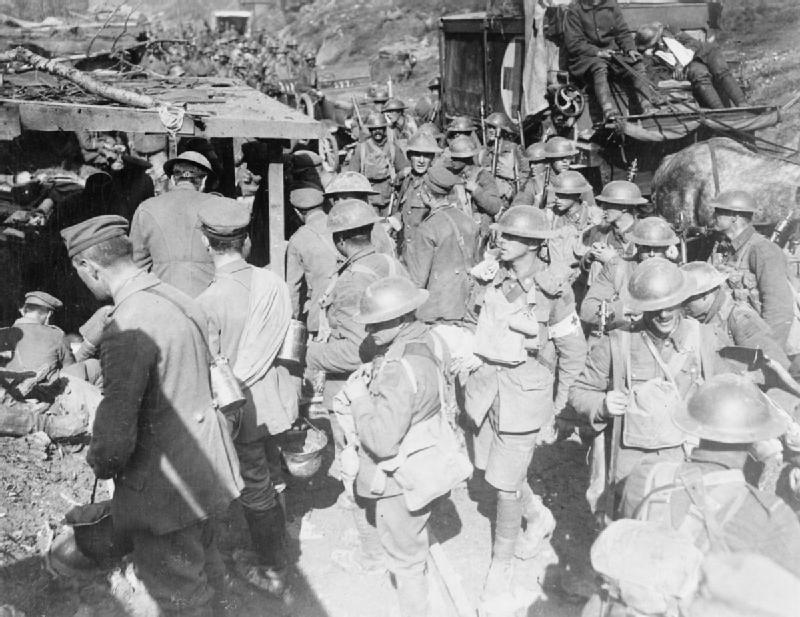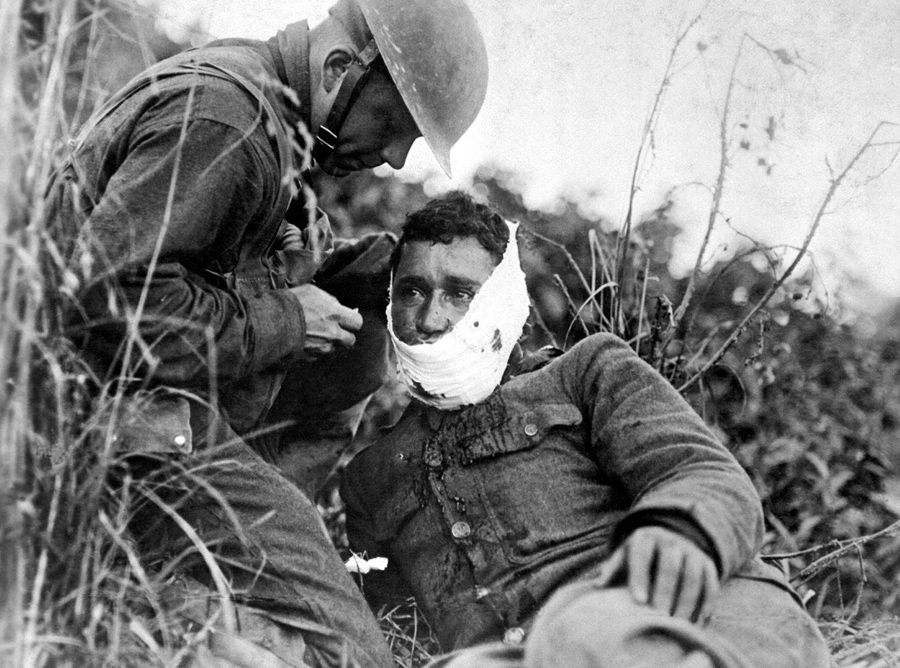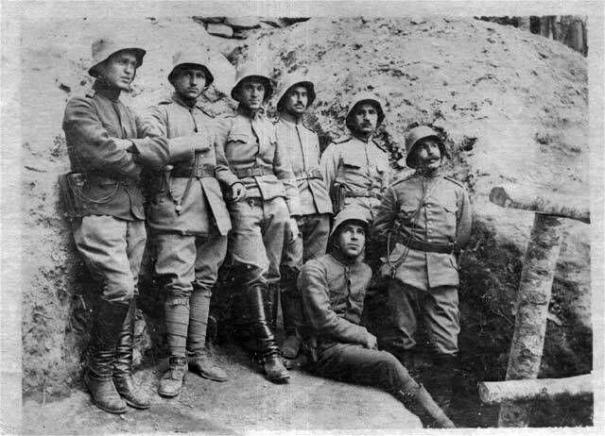Talk of an Armistice, Bulgaria in Turmoil,
But Fighting Still Ferocious.
Special to The Great War Project.
(8 October) A century ago, one by one and day by day, Germany and its allies are crumbling.
On September 27th “more than 23,000 German prisoners had been taken,” reports historian Martin Gilbert. Elsewhere on the front line of the Western Front, a six-hour artillery bombardment with more than seven hundred allied tanks are in action.

Allied artillery on the Western Front, September 1918.
By then, more than a thousand aircraft have joined the fight, supporting the Allied effort with more than seven hundred tons of bombs dropped.
“By nightfall,” writes Gilbert, “the attacking forces had taken 10,000 prisoners and two-hundred guns.
Even by the standards of the Western Front, the scale of the German losses is astounding: Thirty-three thousand prisoners in one day.
The British launch another massive offensive on September 28th at Ypres, the third attack to break the German hold there. Five-hundred aircraft are in the air.
Belgian troops were also in action that day, recapturing Passchendaele, which had been lost a year earlier, “the scene of such terrible slaughter,” writes historian Gilbert.

Chaos on the Western Front, September 1918.
On the Salonica front in mountainous Greece, more than 10,000 Bulgarian and German soldiers are taken prisoner in the third week of September.
Then a significant move to end the fighting. “On September 28th,” writes Gilbert, “Bulgaria with British and Greek troops already on her soil began armistice talks with the French and British in Salonica.”
They are “the first to succeed in calling off the fight.”
Top German political leaders then weigh in. They tell the German Kaiser that Germany must join the armistice talks. They tell the Kaiser on September 29th that “the war cannot go on.”
Why? According to historian Martin Gilbert, “Germany’s top two military leaders tell the Kaiser, this is not about the will and ability of the German soldier to fight. No, it is also President Wilson’s deep reluctance to negotiate in any way with the Kaiser himself or his military chiefs.”
So, Gilbert reports: “the Kaiser signs a proclamation establishing a Parliamentary regime.”
“In the space of a single day Germany’s militarism and autocracy were all but over.”

Just wounded, Allied positions, Western Front, September, 1918.
“But the battles continued, “nowhere more fiercely than on the Meuse-Argonne Front. On September 29th, the fourth day of the battle, American forces were brought to a halt, partly by the unflagging German defense, partly by the incredible chaos that had developed in their lines of supply and communication.”
Observes one visitor to General Pershing at the French Front, “His soldiers were dying bravely but they were not advancing or very little, and their losses were very heavy. All that great body of men which the American army represented was literally struck with paralysis.”
Then “hostilities on the Bulgarian front,” reports Gilbert, “ended at noon on September 30th. That leaves Bulgaria in turmoil, and with no chance of Germany providing reinforcements.”

Bulgarian troops mutiny, September 1918.
“The Bulgarian collapse was a blow to Germany and Austria, both of which were suddenly cut off from all land links with their ally Turkey.
At the beginning of October a century ago, the situation looks dire for Germany, but fighting is ferocious nevertheless.

1 comment for “GENERALS TO THE KAISER: THE WAR CANNOT GO ON”